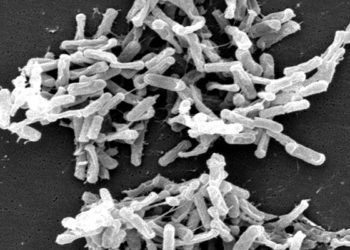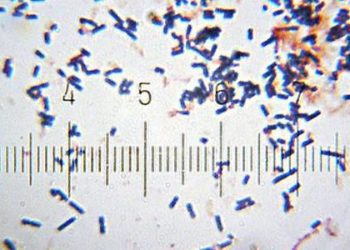Impact of multispecies probiotic in preventing antibiotic-associated diarrhea unclear
1. In a randomized control trial, administration of multispecies probiotics did not affect the incidence of antibiotic-associated diarrhea as defined by strict criteria.
2. Multispecies probiotic use was associated with a decreased risk of developing diarrhea regardless of etiology and of requiring intravenous rehydration due to diarrhea.
Evidence Rating Level: 1 (Excellent)
Study Rundown: Antibiotic-associated diarrhea (AAD) is a common complication of antibiotic use. The etiology of AAD is thought to be related to gut dysbiosis which in turn allows overgrowth of pathogenic organisms. There has been mixed evidence regarding the use of probiotics to prevent AAD, with most studies having examined single-species probiotics. This randomized control trial aimed to assess the efficacy of multispecies probiotic in preventing AAD in children aged 3 months to 18 years of age who were receiving antibiotics. AAD was defined as 3 or more loose or watery stools caused by C. Difficle or of unknown etiology. When applying this definition, the rates of AAD were not significantly different between the probiotic and placebo groups. However, the group receiving multispecies probiotics had a lower risk of developing diarrhea regardless of etiology and were less likely to require intravenous rehydration. The decreased overall risk of diarrhea in the probiotics group was largely attributable to less episodes of viral gastroenteritis. A significant number of subjects were lost to follow up, which may have impacted the study’s results. Overall, this study suggests that a multispecies probiotic is ineffective in preventing AAD according to its strict definition, but may be helpful in preventing any cause of diarrhea following use of antibiotics in children.
Click here to read the article in the JAMA Pediatrics
Relevant Reading: Probiotics for the Prevention of Antibiotic-associated Diarrhea in Adults: A Meta-Analysis of Randomized Placebo-Controlled Trials
In Depth [randomized controlled trial]: This study was a multicenter, mixed setting (inpatient and outpatient) randomized controlled trial, including participants aged 3 months to 18 years of age who received broad-spectrum antibiotics within 24 hours from 3 Dutch and 2 Polish pediatric sites. Subjects were randomized to two groups of placebo and multispecies probiotic groups, and were instructed to administered the study product within 24 hours of the first antibiotic dose for the duration of the antibiotic treatment and for 7 days after finishing the antibiotic course (maximum 17 days). The multispecies probiotic contained 8 bacterial strains and a dose of 10 billion CFUs daily. Parents recorded the consistency of the subjects’ stool according to the Amsterdam Infant Stool Scale (AISS) or Bristol Stool Form Scale (BSFS). Stool samples were tested for rotavirus, adenovirus, norovirus, Campylobacter, Salmonella, Shigella, and Yersinia and C. difficile. In the study period of Feb 2018 to May 2021, 350 participants were initially randomized, but only 229 completed the study. The primary outcome measure was AAD, defined as 3 or more loose or watery stools in a 24-hour timeframe (with scores of A on the AISS or 5-7 on BSFS) caused by unknown etiology or by C. Difficle following testing for other diarrheal pathogens. When applying this definition, the rates of AAD incidence were not significantly different between probiotic and placebo groups (RR 0.81, 95% CI 0.49-1.33). Interestingly, the multispecies probiotics group did have a lower risk of developing diarrhea regardless of etiology (RR 0.65, 95% CI 0.44-0.94, p=0.02) and were less likely to require intravenous rehydration as a result of diarrhea (number needed to benefit = 32, 95% CI 14-125, p=0.03). This was largely attributable to differences in rotavirus infections between the two groups.
Image: PD
©2022 2 Minute Medicine, Inc. All rights reserved. No works may be reproduced without expressed written consent from 2 Minute Medicine, Inc. Inquire about licensing here. No article should be construed as medical advice and is not intended as such by the authors or by 2 Minute Medicine, Inc.







